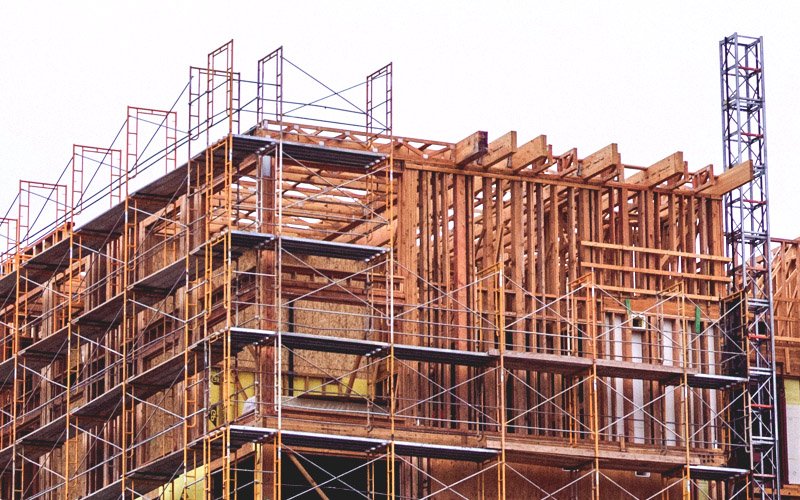TUNING SERVICE SPECIALIZED IN ELIMINATIONS
DPF Solutions Tuning
At DPF Solutions Tuning, we are a team of highly trained and experienced engineers specializing in advanced optimization and complete removal of DPF, EGR, and DEF systems on heavy-duty diesel engines.
Our expertise allows us to offer customized solutions that improve performance, increase fuel efficiency, and extend the life of your truck. With years of practical experience, we offer reliable, professional, and affordable services tailored to each client’s needs.
Contact us without obligation to receive a quote for your diesel engine.
2017 Divi Lead
$19,345
Optimizing Your Engine: Detroit Diesel DPF Delete Benefits Explained
Detroit Diesel engines have long been the powerhouse of choice for heavy-duty trucking, but even these robust machines can benefit from strategic modifications like DPF delete services. As fuel costs rise and downtime becomes increasingly expensive, many fleet owners and operators are exploring options to enhance their engine’s performance, reliability, and efficiency.
For Detroit Diesel engines, including the popular DD13, DD15, and DD16 models, optimizing performance often means addressing the limitations imposed by emission control systems. Understanding the benefits and considerations of DPF delete technology can help you make informed decisions about your equipment and potentially realize significant improvements in operation.
Introduction to Detroit Diesel Engines
Detroit Diesel engines are renowned in the trucking industry for their durability and power, serving as the backbone for countless commercial fleets across North America. These engines deliver impressive performance under demanding conditions, but like all modern diesel engines, they’ve undergone significant changes to meet increasingly stringent emission regulations.
The Detroit Diesel family includes several popular models:
- DD13®: Common in medium-duty applications, delivering up to 505 HP
- DD15®: The workhorse of the lineup, powering many Class 8 trucks with up to 505 HP
- DD16®: The largest displacement engine, offering up to 600 HP for the most demanding applications
These engines are designed to provide a balance of power, durability, and efficiency, making them suitable for a wide range of trucking and heavy-duty applications. Each model incorporates advanced technologies to meet performance demands while adhering to emission standards. For example, the DD15® is widely appreciated for its fuel efficiency and reliability on long-haul routes, while the DD16® offers the extra muscle needed for heavy loads and challenging terrains.
In addition to horsepower ratings, these engines feature robust torque outputs that contribute to their strong performance. The DD13® delivers impressive torque suitable for medium-duty tasks, whereas the DD16® offers higher torque to handle the toughest jobs. This versatility ensures that fleet operators can select the engine model that best fits their operational requirements.
Furthermore, Detroit Diesel engines are continuously updated with the latest advancements, including improvements in fuel injection systems, turbocharging, and electronic controls. These enhancements contribute to optimized combustion, better fuel economy, and reduced emissions, aligning with industry trends toward cleaner, more efficient diesel technology.
Modern Detroit Diesel engines come equipped with multiple emission control systems, including the Diesel Particulate Filter (DPF) and Exhaust Gas Recirculation (EGR) systems. While these components help reduce emissions, they can also impact engine performance, fuel economy, and maintenance requirements.
Understanding DPF Delete Technology
The Diesel Particulate Filter (DPF) was introduced to Detroit Diesel engines as part of emission control systems, designed to capture and eliminate soot and particulate matter from exhaust gases. While environmentally beneficial, these systems create several operational challenges for engine owners.
DPF systems require periodic regeneration cycles to burn off accumulated soot. These regeneration events consume additional fuel, reduce engine efficiency, and can interrupt operations. Over time, DPFs can become clogged despite regeneration, requiring expensive cleaning or replacement—a significant maintenance expense for fleet owners.
Detroit Diesel DPF delete technology involves:
- Physical removal or modification of the DPF component
- Reprogramming of the engine control module (ECM)
- Optimization of fuel mapping and engine parameters
- Adjustments to compensate for the changed exhaust flow dynamics
Benefits of a Detroit Diesel DPF delete often include:
Improved fuel economy:
Many owners report 10-15% improvements in fuel consumption after DPF delete, which can translate into substantial savings over time, especially for fleet operators covering long distances. By reducing the exhaust back pressure and allowing the engine to breathe more freely, fuel efficiency is enhanced, ultimately lowering operating costs and extending the range between refueling stops.
Increased engine power and torque:
Removing the DPF reduces exhaust restriction, allowing the engine to operate more efficiently and deliver greater power and torque. This boost in performance can improve acceleration, towing capacity, and overall responsiveness, making the vehicle better suited for demanding tasks and heavy loads.
Extended engine life:
With the DPF removed, there is less strain on critical engine components caused by clogged filters and forced regeneration cycles. This reduction in stress can lead to less wear and tear, helping to preserve engine integrity and extend the overall lifespan of the Detroit Diesel engine.
Reduced maintenance costs:
Eliminating the need for periodic DPF cleaning, replacement, and associated repairs can significantly decrease maintenance expenses. Fleet owners benefit from fewer service interruptions and lower parts and labor costs, improving the total cost of ownership.
Eliminated regeneration cycles:
DPF regeneration involves burning off soot accumulation, which requires additional fuel and often forces the vehicle into idle mode, reducing productivity. By deleting the DPF, these forced idle periods are eliminated, allowing for uninterrupted operation and improved efficiency during long hauls or heavy-duty work.
Service Title
Lorem ipsum dolor sit amet, consectetur adipiscing elit. Phasell sed nibh dignissim, cursus tellus sit amet, ultrices mauris. Aliquam
Service Title
Lorem ipsum dolor sit amet, consectetur adipiscing elit. Phasell sed nibh dignissim, cursus tellus sit amet, ultrices mauris. Aliquam
Service Title
Lorem ipsum dolor sit amet, consectetur adipiscing elit. Phasell sed nibh dignissim, cursus tellus sit amet, ultrices mauris. Aliquam
Service Title
Lorem ipsum dolor sit amet, consectetur adipiscing elit. Phasell sed nibh dignissim, cursus tellus sit amet, ultrices mauris. Aliquam
Service Title
Lorem ipsum dolor sit amet, consectetur adipiscing elit. Phasell sed nibh dignissim, cursus tellus sit amet, ultrices mauris. Aliquam
Service Title
Lorem ipsum dolor sit amet, consectetur adipiscing elit. Phasell sed nibh dignissim, cursus tellus sit amet, ultrices mauris. Aliquam

PROGRAMMING ECM DETROIT DIESEL
Programming the Engine Control Module (ECM) in Detroit Diesel engines is a critical step in the DPF delete process. The ECM acts as the brain of the engine, managing fuel injection, air flow, emissions controls, and other vital functions. When the DPF is removed or disabled, the ECM must be reprogrammed to adjust the engine’s parameters accordingly.
This reprogramming involves updating the ECM’s software to eliminate the DPF regeneration cycles and recalibrate fuel mapping to optimize combustion without the particulate filter. Proper programming ensures that the engine runs efficiently, maintains power output, and avoids triggering error codes or limp mode.
In addition to removing DPF-related functions, ECM programming can include enhancements such as optimizing the DEF pump operation and adjusting SCR system parameters if applicable. This comprehensive tuning approach helps to maintain emissions control compliance where possible and improve overall engine performance.
Many service providers offer remote ECM programming services, allowing fleet operators to update their engines without needing to visit a physical shop. This convenient option minimizes downtime and ensures that the ECM is programmed correctly for the specific Detroit Diesel model and application.
Requirements for Remote tuning
RP1210 Diagnostic Adapter for Trucks
You must have any of the adapters (Nexiq USB Link, Cummins Inline, DPA5, Noregon, VOCOM…), or another that performs the same function RP1210
Windows Laptop
A laptop with Windows Pro installed, and diagnostic software installed. We can provide the diagnostic software.
Internet Connection
have a good internet connection signal to avoid interruptions during programming.
EGR Delete and Engine Performance
While DPF delete services address one aspect of emission control, the Exhaust Gas Recirculation (EGR) system represents another opportunity for performance enhancement on Detroit Diesel engines. The EGR system recirculates a portion of exhaust gases back into the engine’s intake manifold, reducing combustion temperatures and nitrogen oxide (NOx) emissions.
However, the EGR system introduces several operational challenges:
- Increased carbon buildup in the intake system
- Reduced combustion efficiency
- Higher engine operating temperatures
- Additional cooling requirements
- Potential for EGR cooler failures
An EGR delete for Detroit Diesel engines involves removing or disabling the EGR components and reprogramming the engine control module to optimize performance without this system. The process is technically complex, requiring specialized knowledge of Detroit Diesel engine systems and careful calibration.
When combined with a DPF delete, an EGR delete can provide comprehensive performance improvements for Detroit Diesel engines. The synergistic effects include:
- Further improved fuel efficiency
- Reduced engine operating temperatures
- Enhanced reliability through simplification
- Decreased potential for intake system fouling
- More responsive engine performance
Remote Tuning for Detroit Diesel DPF
Modern technology has revolutionized how Detroit Diesel engines can be optimized, with remote tuning services providing a convenient and efficient solution for DPF delete implementation. This approach minimizes downtime and eliminates the need to transport your vehicle to a physical shop location.
Remote tuning for Detroit Diesel engines works through these steps:
- Connection to the engine’s Electronic Control Module (ECM) via diagnostic port
- Secure data transfer between the tuning expert and your engine
- Custom calibration based on your specific engine model and application
- Real-time adjustment and optimization of parameters
- Verification testing to ensure proper operation
This process typically requires minimal equipment on the customer’s end—usually just a laptop and an interface cable or wireless diagnostic tool. The tuning expert handles the complex work remotely, making adjustments based on your engine’s specific needs and your performance goals.
The benefits of remote tuning for Detroit Diesel DPF delete include:
- Convenience: The service comes to you, wherever your truck is located
- Reduced downtime: Often completed in hours rather than days
- Expert service: Access to specialists regardless of geographic location
- Cost-effectiveness: Lower overhead translates to competitive pricing
- Ongoing support: Many providers offer follow-up adjustments as needed
Remote tuning has become particularly valuable for fleet operators who can’t afford extended downtime or for trucks that operate in areas without local access to specialized Detroit Diesel service providers. The technology has matured to the point where remote tuning provides results equivalent to in-person service for most applications.
Remote Tuning for Detroit Diesel DEF

Diesel ECM tuning company. As industry-leading remote ECM tuning engineers, we pride ourselves on providing proven solutions for on- and off-highway diesel trucks.
CONTACT US
+51966080192
support@dpfsolutions-tuning.com
Open Hours
Mon:9am – 5pm
Tue: 9am – 5pm
Wed: 9am – 5pm
Thur: 9am – 5pm
Fri: 9am – 3pm
Sat: Closed
Sun: Closed
Send A Message

Company
SERVICES
ABOUT US
BLOG
Contact
WhatsApp +51966080192
Mo-Fr 9am – 5pm UTC-5
Sa 9am -1pm UTC-5


